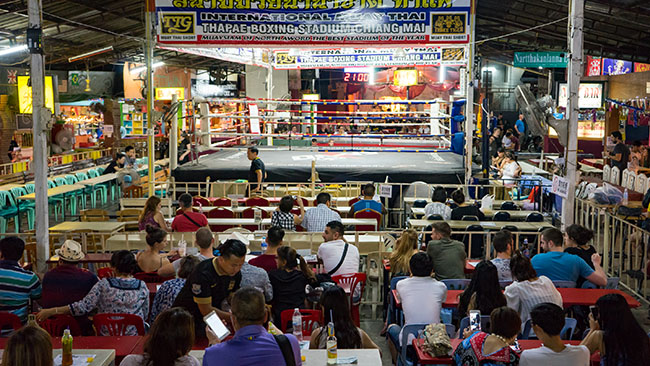Photo: red mango / Shutterstock.com
There was a comfort in not knowing where she was. It felt like evidence that the menaces in her life—menaces tied tightly to a place and the people of that place—didn’t know where she was either. The beard that cushioned his chin against the muscle between her neck and shoulder. And there was a comfort in not understanding what was going on around her. That just as she understood none of the sounds and rituals of where she was, nothing of where she was understood her, knew her, wanted from her. The calloused fingers that rested on her naked ribs like they were settling onto the keys of a piano. A reciprocity, an agreement between her and her environment that they might both leave a desire to know too much at the door, that they might both forgo wanting anything from the other at all. A reciprocity that felt only fair, and only natural and that must, therefore, be real. The hairy paunch against her spine. There was a comfort in the strobe lights, and the shouts in Thai, and the beer running down her fingers as she joined with the men around her to throw her arms into the air and cheer, or jeer.
She was already drunk when she’d arrived, when she’d pushed crumpled cash through the ticket window and slurred, “Best seats in the house, for him too,” pointing at her tuk-tuk driver, whom she’d hired to be her guide for the day. Ringside seats with Mike. He’d given his name as Mike that morning to preempt her spending the day trying and failing to get his real name right. Instead, they spent the sunlight hours careening down curvy mountain roads while she flung her arms out and threw loud laughs into the wind.
“It’s great you don’t have to wear seatbelts here!” she said.
They puttered between bars and temples in the city as night came on, sampling a shot here and a mood there. She had told him that she wanted to feel the place in her bones. And now that it was proper dark, Mike told her this was the place to be.
She didn’t know the first thing about Muay Thai, so she gave her screams to whichever fighter started out in the corner closest to them. Her voice became part of the music of the place, first chair in the drunk tourist section. Mike kept her beers topped off, and she fell into the music of the place. It was hypnotic. The nasal ululations of some unknown instrument rode high over everything, like a car horn given license to explore beyond its single note and swerve across the scales. The drums quickening their pace in rhythm with the fights, a gentle ting-ting metronoming under the whole thing, the slap of skin on skin inside the ring—his grunting, his sweat falling from his forehead one globule at a time, half saline and half cologne—the quickened breathing, the crunch of a rib, the roar from the stands. Time passed with the rhythm of these sounds, and it hadn’t come to an end when Mike pulled her up and told her she would fall asleep if she stayed there any longer. He told her she was looking drowsy and needed some cold night wind to wake her up, that she hadn’t yet felt his city in her bones, not fully, and he led her to the tuk-tuk.
She giggled. “Show me where life is, Mike!”
She stretched out across the bench in the back and wrapped her arm around the tuk-tuk’s frame. Red and gold lights bulged from the center of the roof, and she was a child again, in a carnival ride on the beach.
“Show me everywhere where life is!”
She’d picked Mike out from the crowd that morning because his tuk-tuk had been hung with sooty silk flowers, and painted yellow at the top, and because a scarf tied to the handlebars reminded her of a pattern her mother used to wear. Her legs stretched long against the bench until her bare shins hit the frame on the other side. With her neck bent backward looking up, she found herself in the center of a neon kaleidoscope. Mike climbed in front and the kaleidoscope began to whirl.
He revved and sped and she laughed weeeeee and stars and tree branches and the crenellated top of the old city wall displaced the neon and it all flowed by. Her dress trembled when it caught the wind. She asked Mike if he knew any American songs, and before he could answer, she sang, almost in a whisper, “Hush little baby, don’t say a word—” She strummed her ribs through the dress. The river and soup carts and idling tuk-tuks each with their own distinct plumage. Restaurants and night clubs and a man on stilts doing tricks. Flowing by. This was peace, and freedom, and the beginning of something new.
A throng of expats spilled over from a bar onto the sidewalk and into the street in front of them.
“Last stop,” he said.
Vegan-looking hippie types. Tight-shirted digital nomad types. Tourists like her, passing through, some wearing new Thai textiles and others in ratty Marvel tees with wristbands from the last three nights as badges of their exploits. A group that never would have come together at home. Pulsing with every happy thing from home. All smiles, inhabiting a rose-colored collective memory. Holding each other like old friends, swaying, belting out Santana’s “Maria, Maria” with the indie band inside like it was their anthem. The play of water on the lake. Flour on her mother’s apron, the smell of cookies. Mike led her into the crowd. It was a good place to end the night, he told her, and her hotel was just around the corner he told her, and he draped her arm over someone standing in the middle, put a cigarette to his lips, and vanished backward.
She was surprised she could remember the lyrics. Livin’ a life just like a movie star—
Swaying, laughing, Santana.
When they maneuvered her to the wall nearby, the world was still flowing around her. Se mira Maria on the corner, thinking of ways to make it better— And their hands on her thighs. And their breath and their mouths. And her ribs pushed into the wall, bone on brick. And a yellow-topped tuk-tuk growing smaller and smaller until it became a single point in the distance, and then nothing at all.
Jennifer Renart studied creative writing at George Mason University and lives in the Washington, DC suburbs. Her words also appear in HerStry. When she’s not writing, she’s running a small candle business and tackle-hugging the dogs in her neighborhood. You can connect with her on Twitter at @JenniferRenart.

